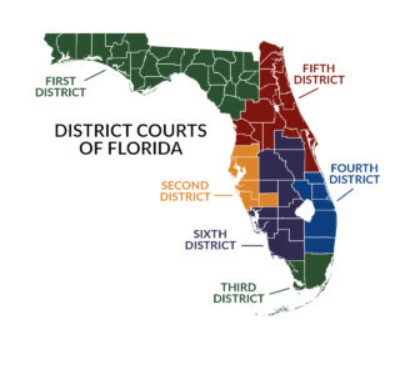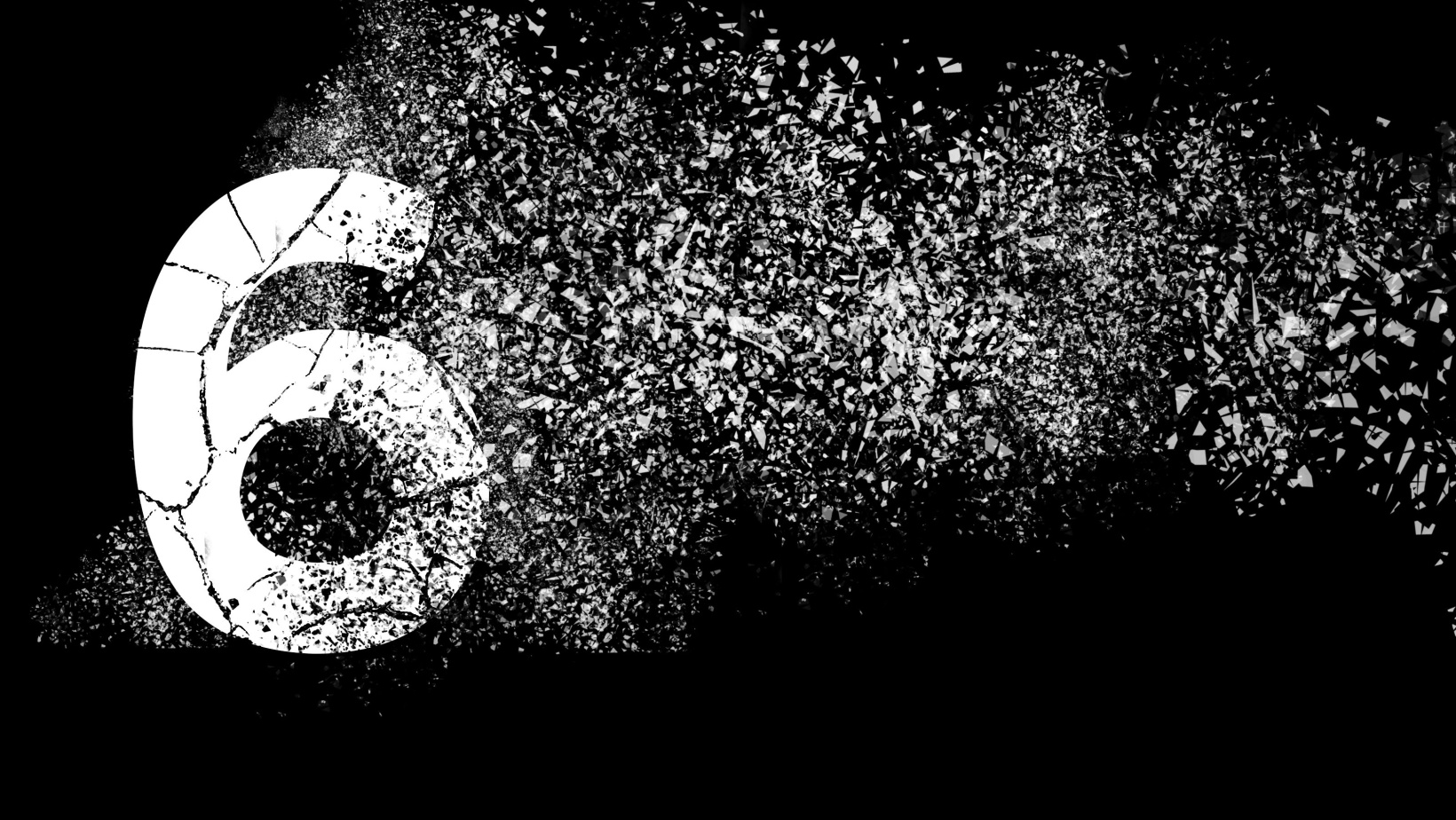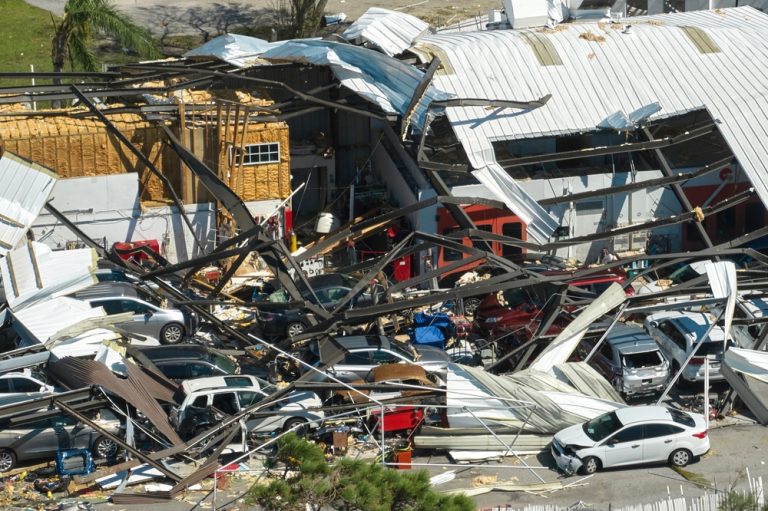Florida’s New Sixth District Court of Appeal Confirmed
Florida’s New Sixth District Court of Appeal Confirmed
Florida has not added a District Court of Appeal (DCA) since 1979 when the legislature created the Fifth DCA, but Florida’s judicial branch, in coordination with the executive and legislative branches is now adding a Sixth District Court of Appeal. Under the legislation creating the Sixth DCA, the jurisdictional boundaries of three DCAs will change including the First, Second, and Fifth DCAs.
Pursuant to the Florida Rules of Judicial Administration, every eight years, the Chief Justice of the Florida Supreme Court appoints a committee to analyze the status of the state’s courts and to make recommendations, if necessary. There are five factors the Judicial Assessment Committee must consider including effectiveness, efficiency, access to appellate review, professionalism, and public trust as well as confidence. Since 1979, the number of DCA filings per year has increased from 9,000 to almost 20,000 today. On November 24, 2021, consistent with the Committee’s recommendation, the Florida Supreme Court certified the need for the creation of the Sixth DCA.
After passing through the House and then the Senate, the proposed legislation went through several changes. Later, a conference committee amended the bill again. Mostly, the changes effected the composition of the Second DCA and the new Sixth DCA. Despite the corresponding appropriations being vetoed, Governor Ron DeSantis signed H.B. 7027 on June 2, 2022 creating Chapter 2022-163, Laws of Florida. The final version of the bill is as follows:

- The Sixth DCA scheduled to commence on January 1, 2023.
- The new headquarters for the district court will be in Lakeland, Polk County, assuming the Second DCA’s facilities.
- The Sixth DCA will be comprised of the 9th, 10th, and 20th Circuits.
- Seven new appellate judges will be appointed.
- The First DCA will decrease from 15 to 13 appellate judges.
- The Second DCA will decrease from 16 to 15 appellate judges.
- The Fifth DCA will increase from 11 to 12 appellate judges.
- The legislation does not propose any changes to the Third and Fourth DCAs.
- Judge John K. Stargel of the Second DCA; Judge Jay Cohen, Judge Meredith L. Sasso, Judge Dan Tarver, Judge Mary Alice Nardella, and Judge Carrie Ann Wozniak of the Fifth DCA will be assigned to the Sixth DCA.
- Judge Meredith L. Sasso will serve as the first Chief Judge of the Sixth DCA.
Realignment Should Not Affect Current Sitting Judges
The legislation also states that no sitting appellate judge will lose their appellate judgeship or be required to move their residences because of the bill. Should realignment take effect, if there is a judge that resides in a particular district, he or she will serve that particular district. Based upon the realignment, two First DCA judges residing in Duval County will now serve as judges in the Fifth DCA, while one Second DCA judge and five former Fifth DCA judges will now serve in the Sixth District.
Gubernatorial Appointments Have Lasting Effects
As is with other judicial vacancies, the sitting governor will appoint candidates nominated by the Judicial Nomination Commission to fill the vacancy. Florida’s past four governors have all been Republican, who have appointed more than 70 district court judges, of which most are still active. Thus, a governor’s appointment has a lasting effect that far exceeds the governor’s tenure. As such, it is not likely that the creation of the new district will substantially affect the overall philosophy of the district courts’ judiciary. Currently, Governor DeSantis is running for re-election this upcoming November. Governor DeSantis will likely be entitled to make another seven DCA appointments in late 2022. Per the proposed legislation, within two months of the effective date of the act, the Supreme Court shall provide the Governor with a list of positions the Governor needs to fill via appointment. Likewise, due to the new assignments of the re-assigned Judges their previous appointments to the First, Second, and Fifth DCA will be terminated leaving the Governor with the opportunity to make appointments to the three districts as well as the remaining seats on the Sixth DCA.
Potential Conflict in Controlling Precedent
The fact a DCA decision effects all lower courts in the state regardless of its location makes Florida’s umbrella style stare decisis approach unique. First introduced in the Fourth DCA, umbrella style stare decisis is an analogy for describing the vertical stare decisis followed here in Florida because of its similarity to the spine of an umbrella. In practice, umbrella type vertical stare decisis means the trial courts fall under the precedential web of each median appellate court regardless of its location. Nevertheless, within its sphere, a DCA is treated like a court of last resort for its area and can draw upon its previous decisions and those of the Florida Supreme Court as binding.
The creation of the new DCA gives rise to the possibility of a rare circumstance where there is a conflict in controlling precedent. County and Circuit Courts that would have had binding jurisdiction under a previous DCA may find themselves in a new DCA that has yet to rule on certain issues. The trial court judges in the new DCA, however, are not left without any guidance. If there is no binding precedent in a DCA, then a trial court judge may do one of three things: 1) If there are three or more decisions on the issue, it may follow majority; 2) the DCA may follow the most recent decision of a foreign district; or 3) go with the decision that the trial court believes the DCA would be in agreement.
Unresolved Questions
The Florida Constitution prescribes the make-up of the Florida Supreme Court. Article V, Section 3, states, “Of the seven justices, each appellate district shall have at least one justice elected or appointed from the district to the Supreme Court who is a resident of the district at the time of the original appointment or election.” The current justices on the Supreme Court do not match the representation of DCAs as required by the state constitution.
Governor DeSantis vetoed funding for a new Second DCA courthouse based in Pinellas County. The new court and the legislature will have to sort out this issue on whether to construct a new courthouse in the coming months, if at all. The Second DCA’s old court complex in Lakeland, home of the new Sixth DCA, is outdated and, again, building a new courthouse in Lakeland or in another location must be completed promptly.
Conclusion
When Florida gets a new District Court of Appeal and the three districts re-align, the philosophy of the bench will most likely not change. The increased number of appointments for the fourth consecutive Republican governor means continuing and consistent judicial philosophy for many years to come. Likewise, adding more judges will increase the bandwidth to resolve appeals.









